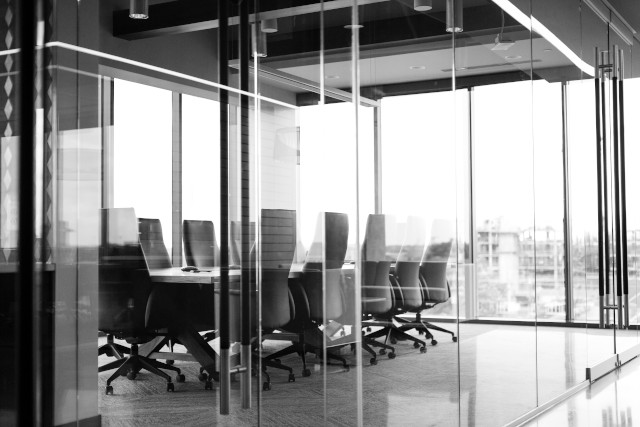
Photo by Drew Beamer on Unsplash
- The office is dead, according to most startup founders
The implications of these findings offer a glimpse into a post-COVID-19 work world. Sixty-six percent of CEOs are considering letting go of (or downsizing) their offices, according to the survey, because an average of 70% of employees who previously reported for duty at a company’s workspace would be allowed to work remotely once stay-at-home orders are lifted.
The majority predicted that mandatory shutdowns will be over by the end of Q3, and 67% said that they would make a sanitized/sterilized workspace a priority to keep their people safe. The majority (61%) said they would allow employees to continue working from home until they felt safe enough to travel and could manage childcare. These CEOs said their companies would not incur additional expenses to help their workers with childcare or commuting.
https://www.fastcompany.com/90507601/the-office-is-dead-according-to-most-startup-founders
Mark Zuckerberg’s new work-from-home zeal is very, very convenientGetting out in front on this work-from-home revolution might just be the message for today, when many of us have come to believe that COVID-19 will change work forever and radically deemphasize the importance of brick-and-mortar offices. (Though not everybody buys it.) It’s a feel-good message that comes just after Facebook picked off Giphy in the midst of a pandemic and during the height of anti-trust angst in Washington. Earlier this month, The Washington Post revealed that Facebook is behind the launch of a new lobbying group called American Edge, which will try to calm anti-tech and anti-trust fever in the capital.
If Zuckerberg follows through on his comments, there are some positives here. Zuckerberg stated that Facebook will immediately start focusing on hiring people who live away from the crowded and overpriced housing markets of the coasts. If Facebook did transition to 50% remote work, it could expand the tech talent pool geographically and make it easier for tech companies small and large to find good people. “It doesn’t seem that good to constrain hiring to people who live around offices,” Zuckerberg eloquently said. It might also extend the economic spillover zones that benefit indirectly from tech industry money to new places farther from the coasts.
Even here, there’s a dark side. Facebook says it will adjust salaries to fit the location of the employee, so an engineer working in Silicon Valley will make more money than an engineer doing the same work in Nevada. But, to be fair, such an adjustment might be appropriate so long as the quality of life the two salaries can buy in different markets is equal.
- Understanding the Economic Shock of the Covid-19 Crisis
- Microsoft CEO Satya Nadella warns about the consequences of embracing remote work permanently
“What I miss is when you walk into a physical meeting, you are talking to the person that is next to you, you’re able to connect with them for the two minutes before and after,” he said.
Nadella warned about the consequences of embracing telecommuting permanently:
“What does burnout look like? What does mental health look like? What does that connectivity and the community building look like? One of the things I feel is, hey, maybe we are burning some of the social capital we built up in this phase where we are all working remote. What’s the measure for that?”
Nadella’s concern doesn’t appear to be shared widely throughout the technology industry. Twitter CEO Jack Dorsey notified staff this week that they should feel free to work from home indefinitely if they choose. Salesforce and Zillow will give employees the option to telecommute for the rest of the year.
- The hunt for a work-from-home webcam: A story of broken supply chains, ‘sold-out’ messages and refreshing online carts
Webcams are sold out or on weeks-long back order nearly everywhere across the Internet, and people are reporting having trouble finding them in the limited number of retail stores that are open as well. E-commerce tracking company CommerceIQ found 78 percent of views on webcam product pages on big online retail sites showed the items were out of stock during the week ended May 9.
People’s shopping habits have shifted away from just buying bulk amounts of food during the pandemic to facing extended work-from-home periods, CommerceIQ CEO Guru Hariharan said.
“Now, I think people are slowly starting to realize this is a new normal,” he said. “They realize they need to get prepared for a new operating normal.”
https://www.washingtonpost.com/technology/2020/05/21/webcam-backorder-coronavirus-pandemic/





